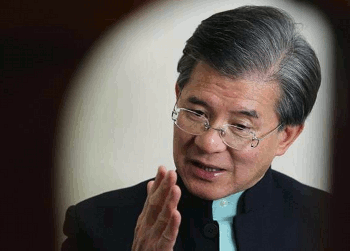
Vincent Lo of Shui On Land: “First hack off the bit with the brand name. Then sell to the foreigners!”
Shanghai-based real estate developer Shui On Land announced last week that it had reached agreement with Brookfield Property Partners L.P that paves the way for an investment of up to $750 million into Shui On’s China Xintiandi subsidiary.
The deal allows Canada-based Brookfield to purchase preferred equity in China Xintiandi, which was formed by Shui On in 2012 as a vehicle for some of the company’s retail and office assets in Shanghai.
In the first phase of the agreement, Brookfield would invest US$500 million to purchase convertible perpetual securities that, if converted, would represent about 21.7 per cent of China Xintiandi’s issued share capital on a fully diluted basis. Brookfield is also said to have an option to invest the remaining $250 million in two years time.
China Xintiandi’s Shanghai Assets
China Xintiandi owns several of Shui On Land’s office and retail assets in Shanghai including the Xintiandi retail complex and the nearby office properties Shui On Plaza and Corporate Avenue 1 and 2.
Also under the ownership of China Xintiandi is the 200,000 square meter mixed-use development, The Hub, located at the Hongqiao Transportation hub. With a large supply of space being developed in Shanghai’s decentralised areas, The Hub has reportedly been facing lower than expected demand.
Iconic Developments But Big Debts
While Shui On’s restoration of the old Shikumen neighborhood that became Xintiandi has made the company famous and sparked a wave of copycat developments around the country, the developer apparently has been struggling with debt problems, and the Brookfield investment is seen as a way for the company to relieve this pressure on its balance sheet.
Shui On said that it would use the proceeds of the sale to Brookfield to repay existing debts, fund capital expenditure and for general corporate purposes. Many market observers indicated that Shui On was having cashflow issues that made it hard to compete with its better capitalised competitors.
In an account in the Wall Street Journal, one investment insider viewed the deal as follows:
“Shui On Land faced a slower rate of return in its projects elsewhere and its profit growth lagged behind peers due to relocation problems and complexities in building-preservation projects,” said Chen Geng, an analyst at Philip Securities. “The market is not too optimistic about the company’s cash flow prospects, and the stake sale is seen as a compromise.”
So Shui On’s challenges became Brookfield’s opportunity.
Brookfield Enters the China Market
While the investment in Xintiandi is Brookfield’s first direct venture into China, it apparently will not be the firm’s last.
According to a statement from the company, in addition to the deal with Shui On, Brookfield intends to secure up to a further US$500 million of capital for additional investments in China commercial real estate.
Commenting on the recent agreement, Bill Powell, Australasian Chief Executive Officer of Brookfield said, “China is an important market in Brookfield’s long term growth. The partnership with Shui On Land to invest into China Xintiandi is an ideal way for us to enter this market.”
In July this year Brookfield acquired assets in China indirectly through its acquisition of logistics developer Gazeley, which owns five distribution centres across the country.
The transaction is expected to close in the first quarter of 2014.
Leave a Reply